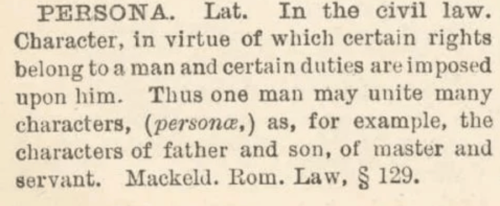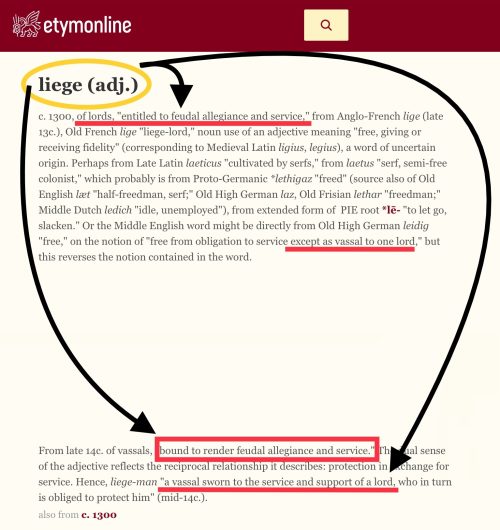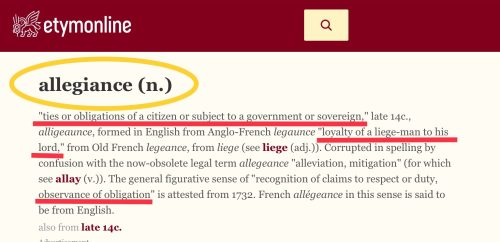The Capillary Wave: Word Index

This word “person” is extremely important in matters of law and governance, and in this context it can take on a totally different meaning to what many citizens believe it to mean.
In law, and on Earth, there are two main lawmakers which are:
- government and
- God.
Governments are completely secular and therefore rule using civil law, which is another word for Roman Law, which is the legal system which governs the citizens of a country.
God’s law is written in Scripture and on the conscience. Importantly man’s government (the powers that be) sits under God’s law, is in opposition to God (you can not have two law makers, rulers, masters: Matthew 6:24: Exodus 20:3) and therefore civil law is a derivative of God’s law:
- Romans 13:1, KJV 1611– Let every soul be subject unto the higher powers. For there is no power but of God: the powers that be are ordained of God.
This word “person” is the pivot point of the lawful and legal jurisdiction. The legal jurisdiction is man’s law and governance under a government, and the lawful jurisdiction is God’s law and governance under Scripture.
Whether you are a “person” or not, at law, will define whom your lawmaker is, your master, it will define which side of the legal vs. lawful jurisdictional line you will fall in to. This is because man’s government only has jurisdiction over the “persons” it creates, and “persons” are not what the God of The Bible created, see:
- Genesis 2:7, KJV 1611 – And the LORD God formed man of the dust of the ground, and breathed into his nostrils the breath of life; and man became a living soul.
It states many times in The Bible not to become a, or accept, man’s person.
- James 2:9, KJV 1611– But if ye have respect to persons, ye commit sin, and are convinced of the law as transgressors.
- Job 32:21-22, KJV 1611 – 21. Let me not, I pray you, accept any man’s person, neither let me give flattering titles unto man. 22. For I know not to give flattering titles; in so doing my maker would soon take me away.
- Romans 2:11, KJV 1611– For there is no respect of persons with God.
- Acts 10:34, KJV 1611 – Then Peter opened his mouth, and said, Of a truth I perceive that God is no respecter of persons.
- Proverbs 24:23, KJV 1611 – These things also belong to the wise. It is not good to have respect of persons in Judgment.
God created “people” not “persons”. The state created “persons” not “people”. Logically speaking, we know that a state; a country does not create “people”; so what then is a “person”?.
Legally speaking this word “person” has different meanings under different Acts of Parliament and in the Law Dictionary’s.
In the Petition Of Right [1627] it states that a person is a “soul-dier and Marriner” (which should be a big clue to Christians as to why it is bad, soul dier relates directly to the Job 32:22 quote above)
Definition of ‘Person’ from Blacks Law Dictionary 4th Edition:
- PERSON. 1. This word is applied to men, women and children, who are called natural persons. In law, man and person are not exactly-synonymous terms. Any human being is a man, whether he be a member of society or not, whatever may be the rank he holds, or whatever may be his age, sex, &c. A person is a man considered according to the rank he holds in society, with all the rights to which the place he holds entitles him, and the duties which it imposes. 1 Bouv. Inst. n. 137. 2. It is also used to denote a corporation which is an artificial person.
Blacks Law Dictionary 8th Edition definitions:
- PERSON. The living body of a human being <contraband, found on the smuggler’s person >: 3. An entity (such as a corporation) that is recognized by law as having the rights and duties of a human being – in this sense, the term includes partnerships and associations, whether incorporated or unincorporated. “So far as legal theory is concerned, a person is any being whom the law regards as capable of rights and duties. Any being that is so capable is a person, whether a human being or not, and no being that is not so capable is a person, even though he be a man. Persons are the substances of which rights and duties are the attributes. It is only in this respect that persons possess juridical significance, and this is the exclusive point of view from which personality receives legal recognition’ person (n.) 1200, persoun, “an individual, a human being,” from Old French persone “human being, anyone, person” (12c., Modern French personne) and directly from Latin persona “human being, person, personage; a part in a drama, assumed character,” originally “a mask, a false face,” such as those of wood or clay, covering the whole head, worn by the actors in later Roman theater. OED offers the general 19c. explanation of persona as “related to” Latin personare “to sound through” (i.e. the mask as something spoken through and perhaps amplifying the voice), “but the long o makes a difficulty ….” Klein and Barnhart say it is possibly borrowed from Etruscan phersu “mask.” De Vaan has no entry for it.
From the above definitions we can see that:
- A person and man are not synonymous terms.
- A person is a corporation; which is a legal fiction. Not living; dead.
- A legal fiction is not real. It is Imaginary, existing only in the mind. A graven image.
- A person holds a rank in society (civil society under civil law) and has duties imposed.
- A person is a mask, a false face, an assumed character.
- “God hath given you one face, and you make yourselves another” – William Shakespeare
Here are a few legal maxims with regards to legal fictions:
- A fiction is a rule of law that assumes something which is or may be false as true.
- Where truth is, fiction of law does not exist.
- There is no fiction without law.
- Fictions arise from the law, and not law from fictions.
- Fiction is against the truth, but it is to have truth.
- In a fiction of law, equity always subsists.
- A fiction of law injures no one.

The scriptures constantly warn people about becoming “persons”.
With regards to law and governance, whomever is the “Father”, makes the law, is the master.
In a country the Monarch is considered the “Father of the nation”. The American Republic has its “Founding Fathers”, and The Father of the Bible is the Father of The Lord’s Prayer; Our Father who art in heaven.
This is important because a “person” is a man made creation of the state, the state is the father. Therefore the state makes the laws and has jurisdiction over its persons; it owns them. This is why it is warned against in The Bible, because to “accept man’s person” in terms of law and governance, is to accept a new “Father”, a new lawmaker, and turn one’s back on The Father who art in heaven. The word “attorn” means, to turn away from one Lord, to give allegiance to another lord; to become a liege man. It is why there is an “attorney general” in government, to oversee those who attorned.



The lawful realm (God’s rule, jurisdiction) is “no respecter of persons” as is stated many times in The Bible as evidenced.
- Deuteronomy 10:7, KJV 1611 – For the LORD your God is God of gods, and Lord of lords, a great God, a mighty, and a terrible, which regardeth not persons, nor taketh reward:
The legal world (man’s government and policies) is also “no respecter of persons”, as evidenced by Supreme Court Judge Brett Kavanaugh who states in his swearing in ceremony to be “no respecter of persons”. Source: Judge Kavanaugh Swearing In Ceremony.
This word is so important both biblically (lawfully), and legally (man’s government), that all of man’s government hinges upon this one word: “person”. You can only be a part of man’s civil society and governed by man’s secular civil law if you have become a “person”, and yet to become a “person” of the state is to break the first commandment:
- Exodus 20:3, KJV 1611 – Thou shalt have no other gods before me.
Small “g” gods in The Bible are earthly rulers, kings, judges; “god’s”. The Bible uses word styles to differentiate between different entities using the same words, as an example: LORD, Lord and lord, all point to different beings. “LORD” being El the Almighty, “Lord” being Christ Jesus, and “lord” being an earthly lord.
Exodus 20: 2-5, KJV 1611 is all about not accepting the government of man, under the control of man, and accepting man’s graven image of that state; the person of man, see Job 32:21, KJV 1611.
A person is a new face, a new persona, of a new family under a new father, and creator. Now you can hopefully see why it is against everything that God stands for, as stated in Scripture. This explains Job 32:22 and therefore why the definition of a “person” would be a soul dier – Job 32:22, KJV 1611 – For I know not to give flattering titles; in so doing my maker would soon take me away.
I would go so far as to state that for a Christian their very salvation relies upon understanding this one word: “person”. After all The Bible is The Book Of The Law, and it is agreed by the state that it is the “infallible truth” as stated in: The Confession Of Faith Ratification Act 1560 preamble:
- ratifeit and apprevit [the confession] as wholesome and sound doctrine grounded upon the infallible truth of God’s word”; thus, though changes within societies may have diminished its relevance, believers hold that the authority of its statements is rooted not in parliamentary approval but in, as it says, “the infallible truth of God’s word.
Infallible means “exempt from error in judgement, knowledge or opinion”.
The fact that Parliament has the above Act on its books, is evidence in point of fact, and law, that every single UK citizen agrees and consents to the fact that The Word Of God is infallible; even those citizens that would consider themselves as “atheists”.
This word person is so important that all of the articles available here publicly at capillarywave.com, explain how law and governance revolves and operates around this one word.
Here is a discussion I had recently about this topic: